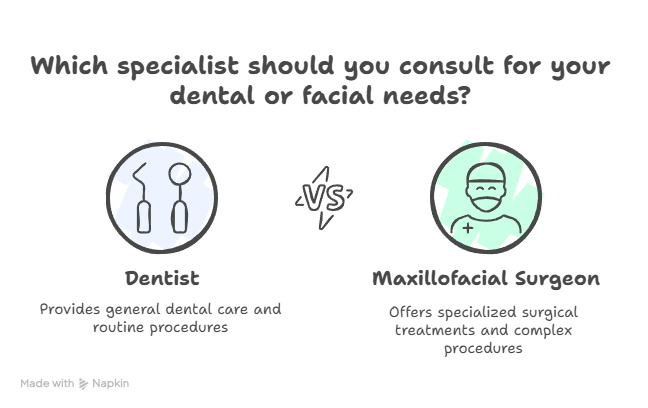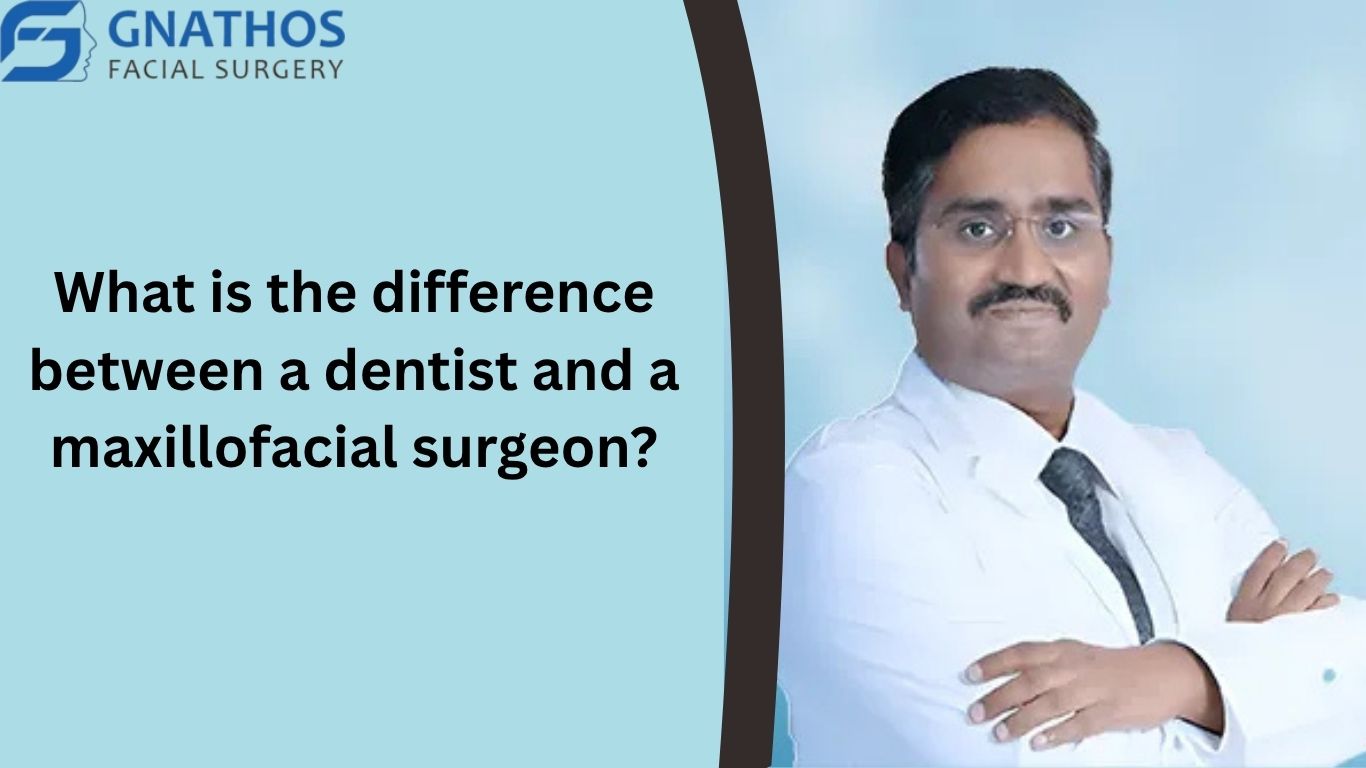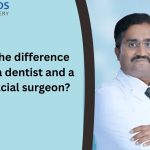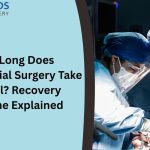You’ve probably been to the dentist countless times for cleanings, fillings, and check-ups. But then, if you or someone you know faces a more complex issue—say, an impacted wisdom tooth, a need for dental implants, or a serious jaw problem—you’re told you need to see a “maxillofacial surgeon.” This instantly brings up a great question: “What is the difference between a dentist and a maxillofacial surgeon?” 🤔
It’s an excellent distinction to make, because while both work on your mouth, their training, scope of practice, and areas of expertise are vastly different. Think of it like this: your family doctor (general practitioner) keeps you healthy and manages common ailments, while a neurosurgeon performs highly complex brain or spine operations. Similarly, a dentist is your primary oral healthcare provider, and a maxillofacial surgeon is a highly specialized surgical expert for the entire facial region.
Today, we’re going to dive deep into what is the difference between a dentist and a maxillofacial surgeon, covering their education, the procedures they perform, and why choosing the right one for your specific needs is crucial for the best outcome. Let’s illuminate this difference and give you a clear understanding of these two vital roles in healthcare!
The Foundational Difference: Education and Training
The most significant distinction between these two professions lies in the extensive education and rigorous surgical training that a maxillofacial surgeon undergoes. This difference in schooling dictates the procedures each professional is legally and competently able to perform.
1. The General Dentist (DDS or DMD) 🦷

A general dentist is your primary oral healthcare provider. Their training is focused on the comprehensive care of teeth, gums, and general oral health.
- Undergraduate Education: A four-year bachelor’s degree.
- Dental School: Four years of study leading to a Doctor of Dental Surgery (DDS) or Doctor of Dental Medicine (DMD) degree. This training covers diagnosis, treatment planning, restorative procedures (fillings, crowns), preventative care (cleanings), basic extractions, root canals, and managing gum disease.
- Scope of Practice: They are experts in non-surgical procedures related to the preservation and restoration of individual teeth and gum health. They are trained to perform simple tooth extractions, but usually refer complex surgical cases to a specialist.
- The Focus: Preventative and Restorative Care for the teeth and gums.
2. The Oral and Maxillofacial Surgeon (OMS) 🧑⚕️
An Oral and Maxillofacial Surgeon is a dental specialist who treats diseases, injuries, and defects involving the hard and soft tissues of the mouth, jaws, and face. Their training is a significant extension of the dental degree, crossing over into the field of medicine.
- Undergraduate and Dental School: Same initial eight years as a general dentist (DDS/DMD).
- Surgical Residency: An additional four to six years of intensive, hospital-based surgical residency. This surgical training is conducted side-by-side with medical residents in general surgery, internal medicine, plastic surgery, and otolaryngology (ENT). Many programs require the OMS resident to also obtain a medical degree (MD) during this time.
- Anesthesia Training: A critical component of their training is mastering all levels of anesthesia, including local anesthesia, IV sedation, and general anesthesia, which allows them to safely perform complex surgical procedures in an outpatient setting.
- Scope of Practice: They are surgical experts for the skeletal structures and soft tissues of the entire craniofacial complex. They are the only healthcare providers trained in both dentistry and surgery who can diagnose and treat conditions spanning the entire face, mouth, and jaws.
- The Focus: Surgical Treatment and Reconstruction of the face, jaws, and oral cavity.
The Key Takeaway: The OMS is essentially a dual-trained specialist—a surgeon with deep knowledge of dental function who is capable of performing operating room-level procedures on the facial skeleton and soft tissues.
Scope of Procedures: Where Their Paths Diverge
While your dentist handles everything inside your mouth, a maxillofacial surgeon’s work extends from the simple removal of difficult teeth to highly complex operations that reshape the facial skeleton. The difference between a dentist and a maxillofacial surgeon is most evident in the complexity of the procedures they manage:
| Procedure Category | General Dentist (Primary Provider) | Oral and Maxillofacial Surgeon (Specialist) |
| Routine Extractions | Simple, non-surgical tooth removal. | Complex Extractions (impacted wisdom teeth, surgical removal of broken roots). |
| Restorative Dentistry | Fillings, crowns, bridges, dentures. | Dental Implant Placement (simple and complex cases, full-arch reconstruction). |
| Gum & Root Care | Basic root canals, scaling, and root planing. | Bone Grafting (sinus lifts, ridge augmentation to prepare the jaw for implants). |
| Oral Pathology | Biopsies of easily accessible, small lesions. | Diagnosis and Surgical Management of cysts, tumors, and oral cancer (requiring major excision and often reconstruction). |
| Facial Skeleton | N/A | Facial Trauma Surgery (repair of fractured jawbones, cheekbones, and eye sockets). |
| Jaw Function | Management of simple TMJ issues with night guards. | TMJ Surgery (arthrocentesis, arthroscopy, open-joint surgery, and total joint replacement). |
| Alignment | N/A | Corrective Jaw Surgery (Orthognathic Surgery) to fix severe underbites, overbites, and facial asymmetry. |
| Sleep | Fabrication of mandibular advancement devices for mild sleep apnea. | Maxillomandibular Advancement (MMA) surgery for severe obstructive sleep apnea. |
The Anesthesia Factor: A Safety Distinction
One of the most practical and crucial differences for the patient is the ability to provide deep sedation and general anesthesia.
Your general dentist can provide local anesthesia (the shots that numb your mouth) and, in some states, nitrous oxide (laughing gas). For more involved procedures, they may offer oral sedatives.
An Oral and Maxillofacial Surgeon, thanks to their hospital-based residency and training alongside anesthesiologists, is the only dental specialist certified to safely administer all levels of anesthesia in an outpatient setting. This includes:
- IV Sedation (Twilight Sleep): Keeping you relaxed, pain-free, and unaware of the procedure.
- General Anesthesia: Rendering you completely unconscious.
This expertise allows the OMS to perform lengthy, complex procedures like wisdom tooth removal or implant placement comfortably and safely, reducing patient anxiety and trauma. This advanced anesthesia training is a hallmark of their specialization.
The Convergence of Care: The Referral System
Understanding the difference between a dentist and a maxillofacial surgeon helps explain the professional referral system. Your general dentist acts as the quarterback of your oral health team. When they encounter a problem that goes beyond the scope of general dentistry, they refer you to the appropriate specialist:
- Periodontist: For complex gum disease treatment.
- Endodontist: For complicated root canals.
- Oral and Maxillofacial Surgeon (OMS): For any problem that requires scalpel, drill, or deep anesthesia.
This collaborative approach ensures that you receive the highest level of specialized care exactly when you need it. The vast majority of patients who see an OMS are referred there because their general dentist recognizes the need for surgical expertise.
Why This Difference Matters to You

Knowing what is the difference between a dentist and a maxillofacial surgeon matters because it empowers you to make informed decisions about your health.
- Safety and Expertise: If you need a procedure that involves cutting bone, navigating nerves, or administering IV sedation, seeing an OMS ensures you are under the care of the professional with the most extensive and specialized training for that exact scenario.
- Optimal Outcomes: For complex issues like facial trauma or jaw deformity, the expertise of an OMS is critical for achieving the best functional and aesthetic outcome, ensuring your bite is correct and your face is symmetrical.
- Comprehensive Planning: For procedures like dental implants, the OMS provides a comprehensive treatment plan that considers the entire skeletal structure, ensuring the implant has the best chance of long-term success through necessary bone grafting or sinus lifts.
For highly specialized procedures involving the delicate structures of the face, jaw, and mouth, you need the confidence that comes from choosing a top-tier specialist. Professionals like Dr. Suresh represent the pinnacle of this specialty, blending the precision of dental expertise with the rigorous training of a medical surgeon to address everything from the most common surgical procedures to the most complex facial reconstructions. To ensure your care is in the hands of a definitive expert, whether for dental implants, corrective jaw surgery, or complex oral pathology, you can explore the extensive services offered by Dr. Suresh. Entrusting your surgical care to this level of expertise ensures you receive the safest and most effective treatment possible.
Frequently Asked Questions (FAQs)
Can a general dentist perform wisdom tooth extractions?
A general dentist can perform simple, fully erupted wisdom tooth extractions, but they will typically refer patients to an Oral and Maxillofacial Surgeon for impacted wisdom teeth, complex cases involving bone removal, or when the patient requires IV sedation or general anesthesia for comfort and safety.
Which professional should I see first for jaw pain and clicking?
You should typically see your general dentist first, as they can perform an initial screening, check your bite, and rule out common dental causes. However, for persistent, severe jaw clicking, locking, or pain that does not respond to basic care, a referral to an Oral and Maxillofacial Surgeon or an Orofacial Pain Specialist is necessary for advanced diagnosis and treatment.
If I need a dental implant, should I see my dentist or a maxillofacial surgeon?
While your general dentist will place the final crown, the surgical placement of the dental implant into the jawbone is best performed by a specialist. An Oral and Maxillofacial Surgeon is highly recommended, especially for cases requiring bone grafting (like a sinus lift) or when the bone quantity and quality are complex, as they are the experts in the underlying jawbone structure.
Why do maxillofacial surgeons train in anesthesia, but general dentists don’t?
Maxillofacial surgeons train extensively in anesthesia because their surgical procedures—such as removing impacted teeth, repairing jaw fractures, and performing orthognathic surgery—are often complex, lengthy, and require the patient to be in a deep, pain-free state. This level of hospital-based anesthesia training is essential for patient comfort and safety during major operations.
Does a maxillofacial surgeon treat problems outside of the mouth?
Yes, an Oral and Maxillofacial Surgeon is trained to treat injuries and defects involving the entire craniofacial region. This includes repairing fractures of the cheekbones, eye sockets, and nasal bones following trauma, treating cysts and tumors in the neck and face, and performing cosmetic procedures on the facial skeleton, extending far beyond the oral cavity.












